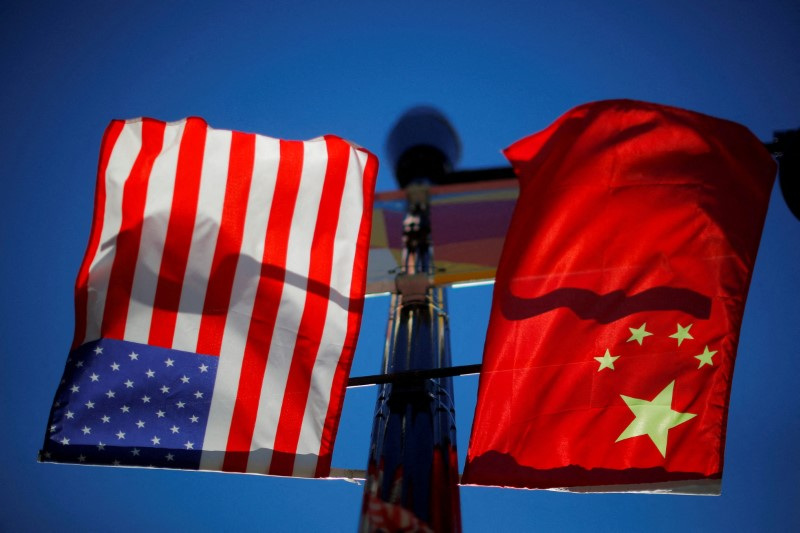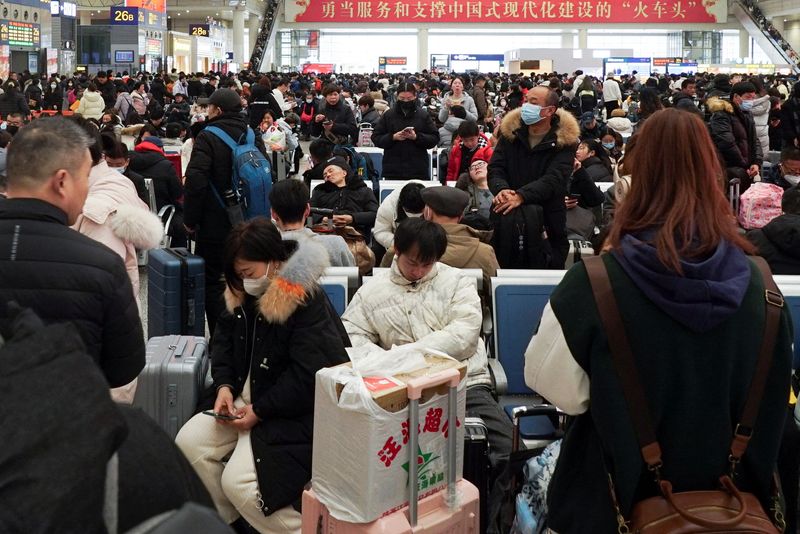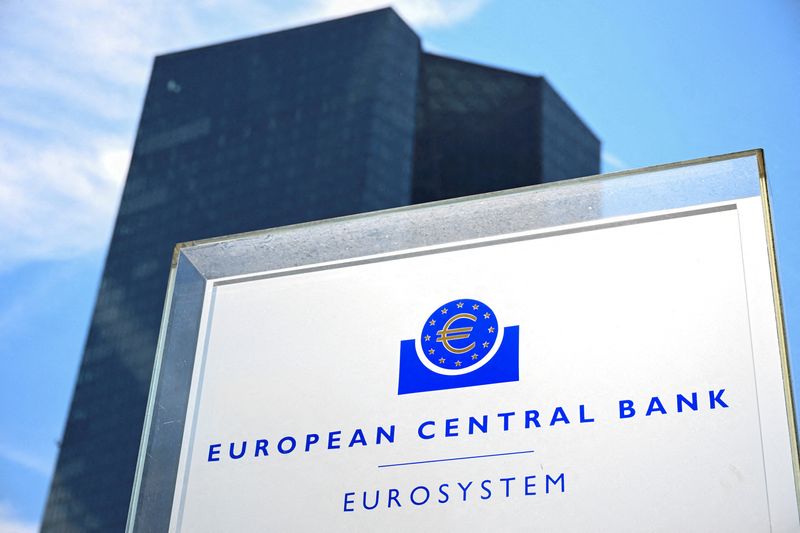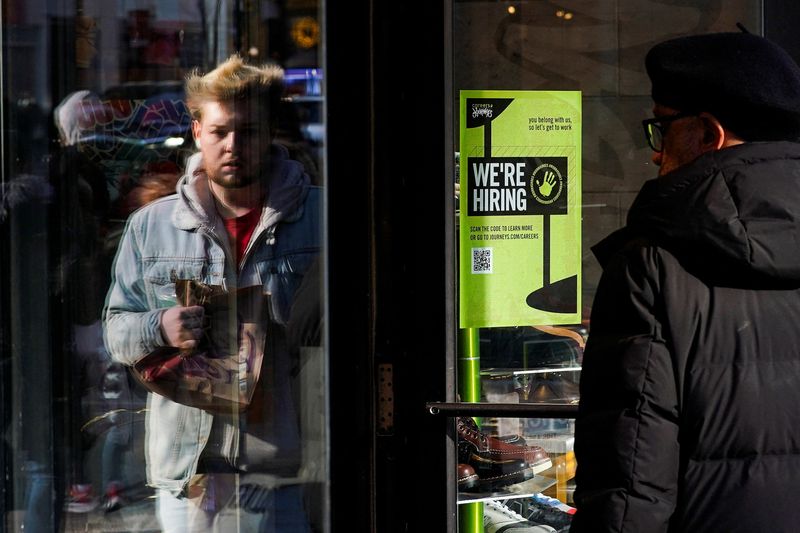SHANGHAI (Reuters) – Chinese firms are squirreling away even more dollars, pricing contracts in yuan and opening import lines to mitigate currency risks as trade tensions threaten to roil foreign exchange rates.
The trend shows exporters are preparing for a long-term shift in trade towards Asia, Latin America and Africa, and safeguarding against potential currency fluctuations like those seen during U.S. President-elect Donald Trump’s first term.
Knife-edge margins are also adding to companies’ anxieties, with spot markets already pushing the dollar about 2% higher on the yuan in the weeks since the U.S. election on Nov. 5.
“There’s an obvious spike in willingness to hold dollars offshore,” said David Jiang, founder of risk management consultancy Qian Jing.
A business in eastern Jiangsu province, which earns $300 million in annual exports, wants help to protect 5% margins from currency risks as it must also navigate Trump’s threat of imposing 60% tariffs on Chinese goods, he said.
For now, most firms are holding on to their dollar earnings from exports and keeping them offshore, if possible. Onshore foreign-currency deposits swelled 6.6% to $836.5 billion over the 12 months to end-October, central bank data showed.
Analysts’ average forecast is for the yuan to fall to 7.3 per dollar by the end of next year from around 7.24 per dollar currently.
“The interest rate differential between the United States and China is wide and that will continue to persist for a prolonged period … holding dollar assets is natural for Chinese exporters,” said Liu Yang, general manager of the financial market business department at minerals exporter Zheshang Development Group.
High U.S. interest rates have pressured forwards such that it is un-economic for exporters to lock in future rates, though Liu said it was favourable for importers to do so and for exporters to sell call options at around 7.5.
CHANGING TRADE
Owning dollars has been a winning strategy. The currency has been kept strong by high U.S. rates and falling Chinese ones.
However, with the trade turmoil of Trump’s first presidency, Chinese businesses are preparing for future disruptions. The yuan rallied 10% through the first 18 months before sliding about 12% through his imposition of tariffs and the pandemic.
That experience has China more prepared this time and has already begun a re-shaping of global trade that is flowing through into financial markets, especially foreign exchange.
“A heavy tariff regime could also change the constitution of currency hedging flows in the long run,” said Nathan Swami, Asia-Pacific head of currency trading at Citi in Singapore.
“The renminbi‘s share of global payments and trade has been growing over the years and it is possible that some of that new trade could be non-USD denominated, thus changing the need for underlying currency hedging.”
The yuan’s share in global trade finance stood at 5.77% at the end of October – ranking it second behind the dollar – compared with about 2% in 2020, according to data from the global bank messaging network SWIFT.
The share of Chinese exports sent to the U.S. has steadily decreased in recent years, while increasing to Southeast Asia, India and Mexico, customs data shows.
Some exporters are already making their own attempts to cut out currency risks by quoting prices in yuan or taking positions in two-way trade flows.
Jacky Wang, a businessman based in southern Guangdong, who sells LED lights in South America and Africa, is setting his own FX deals with customers and says companies should reduce risks by striking up bilateral trades.
“That means using export proceeds to buy local products for imports into China, while converting profits into the U.S. dollar,” he said. “This is a simple, and basic way to manage currency risks,” he said, without using complex hedging tools.
The view was echoed by Han Changming, a car importer in southern Fujian province, who also exports commodities. “The two-way trade provides a natural hedge,” Han said.
While most businesses are not agile enough to lessen risks effectively, exporters are benefiting from a weakening currency as it increases global competitiveness and boosts profits when converted to yuan.
Still, advisers say the backdrop is putting hedging front of mind.

“When Chinese companies venture into new markets, they need to think seriously if they are at the table or on the menu,” said Joseph Liu, chief operating officer of consultancy FX Expert, noting companies were entering volatile FX countries.
“While Trump … stirs short-term anxiety, the trend of going overseas is a long-term positive to my business.”







